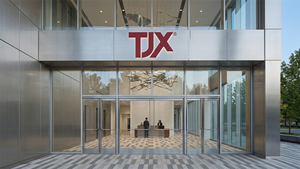Class-action lawsuit says those renting in affected areas since 2016 have likely been victim to an antitrust agreement among 10 local leasing companies
Renters in Seattle’s downtown core have filed a class-action lawsuit accusing 10 major leasing companies of an unlawful agreement to artificially inflate the price of residential real estate in the area, driving up rents in some of Seattle’s densest neighborhoods, according to Seattle law firm Hagens Berman.
The antitrust lawsuit quotes confidential witnesses working for local lessors and was filed Nov. 11, 2022, in the U.S. District Court for the Western District of Washington. The class action accuses 10 local leasing companies of engaging in a scheme involving RealPage Inc., a third-party that connected the housing companies to real-time algorithm-driven shared data. The lawsuit states that defendants Greystar, Trammell Crow Company, Lincoln Property Co., FPI Management, Avenue5, Equity, Essex Property Trust, Thrive, AvalonBay Communities and Security Properties Inc colluded and shared data through RealPage, effectively inflating the prices of multifamily residential real estate in and around downtown Seattle above competitive levels.
If you currently rent a Seattle apartment maintained by one these companies or did so since 2010, you may have paid artificially inflated rent prices and may be affected. The lawsuit states the price-fixing affected the central neighborhoods of Seattle, including Downtown Seattle, Capitol Hill, the Central District, South Lake Union and Queen Anne, which include most of the city’s densest neighborhoods.
The lawsuit follows a similar case filed by Hagens Berman earlier this month on behalf of college students renting near campuses in college towns, affected by similar rent-fixing agreements among housing management companies.
Scheming the Seattle Market
The lawsuit quotes confidential witnesses who have stepped forward to share information about the scheme. Employees at Greystar in Seattle would regularly perform market surveys in which they would call competitors to get rental pricing, then submit that data to their managers. One witness quoted in the lawsuit states: “It was price-fixing… what else can you call it when you’re literally calling your competition and changing your rate based on what they say?” Another unnamed witness states that Defendant employees would call each other two to three times a day to obtain detailed information regarding pricing.
“Anyone who’s played the rental game in Seattle knows that prices have become astronomically high, and leasing companies would rather have the public believe it’s entirely due to honest supply and demand,” said Steve Berman, managing partner at Hagens Berman representing the proposed class of Seattle renters. “Here, we believe we’ve found a smoking gun indicating that’s just not the truth.”
Artificial Manipulation
RealPage’s platform and algorithm provided an unprecedented method for lessors to track competitors’ rents and collude to respond to changing rates in real time, in lockstep, the lawsuit says. “In approximately 2016, more and more Lessors replaced their independent pricing and supply decisions with collusion by adopting a common revenue management program—thus artificially manipulating the forces of supply and demand to their favor.”
“This rigged game has all the markers of a classic antitrust,” Berman said. “A few key players in a single space agreed to act in unison with the clear understanding that all parties take part in the scheme. This kind of wink-and-nod behavior is a red flag that price control may be present in the market.”
According to the lawsuit, RealPage provided the platform and the algorithm for collusion through a software called YieldStar, which granted the lessors unprecedented ability to “track your competition’s rent with precision.” Lessors involved in this scheme submitted data including rents charged for each unit and each floor plan, lease terms, amenities and move dates. The lawsuit says that based on public data, both average and median advertised rents for Seattle properties leased by the 10 defendants are consistently higher than those operated by other companies. While RealPage reports that annual rental growth in the Seattle-Bellevue-Everett market averaged 3.25% over the past five years, it also advertises its software as able to “drive up to 400% year-one ROI.”
“Through its illegal sharing of data across the market, RealPage even managed to outperform in market downturns including the 2008 housing market crash and the COVID-19 pandemic,” Berman said. “When our antitrust team sees numbers like this, we know to be suspicious.”
The lawsuit seeks repayment to those who have been charged increased rent prices due to this scheme and also seeks to hold the companies liable under federal antitrust law, the Sherman Act, under which damages may be multiplied punitively.
Find out more about the rent-fixing class-action lawsuit on behalf of Seattle renters.
Hagens Berman is a global plaintiffs’ rights complex litigation law firm with a tenacious drive for achieving real results for those harmed by corporate negligence and fraud. Since its founding in 1993, the firm’s determination has earned it numerous national accolades, awards and titles of “Most Feared Plaintiff’s Firm,” MVPs and Trailblazers of class-action law. More about the law firm and its successes can be found at www.hbsslaw.com. Follow the firm for updates and news at @ClassActionLaw.
View source version on businesswire.com: https://www.businesswire.com/news/home/20221114006134/en/
Contacts
Media Contact
Ashley Klann
pr@hbsslaw.com
206-268-9363




